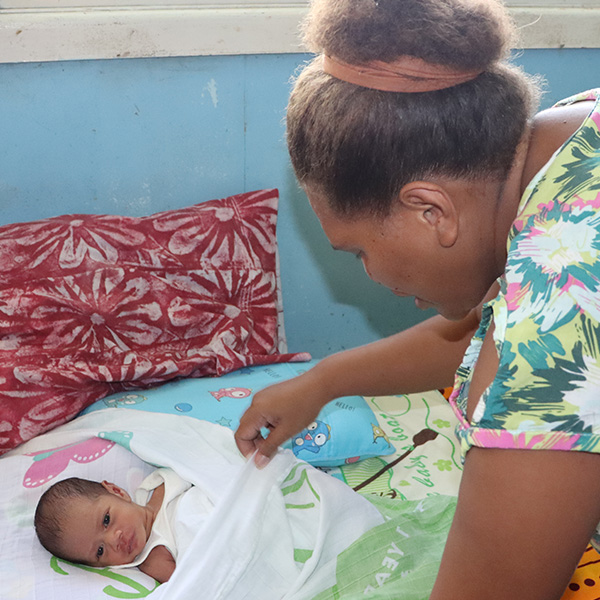Samantha McCulloch: Good morning all. The oil and gas industry recognises the changes announced today to the Petroleum Resource Rent Tax (PRRT) aim to strike a balance between the current budget pressures and the undeniable need for a strong gas sector given the role of gas providing reliable energy for Australian households and businesses, underpinning our strategic partnerships in the region, and in supporting the transformation of our energy system for net zero.
The changes announced today will effectively do two things. It will see more revenue flow earlier to the Federal Budget from offshore LNG producers. It will also provide certainty for the industry to consider future investment. The PRRT has been reviewed four times since 2017 and the changes announced today will close out the long-running Callaghan Review and the Gas Transfer Pricing review. I am happy to take your questions.
Reporter: Ms McCulloch, you sound like you’ve accepted this on the proviso they now leave you alone. Is it your preference that the Opposition passes this rather than forcing Labor to do a deal with the Greens and others who I suspect may feel this is inadequate? Would you like to see the Opposition pass this?
McCulloch: What we want to see is a strong and sustainable future for the gas industry to secure the economic contribution of the industry to Australia and that requires stable and enduring policy settings, and for that we consider bipartisan support will be important.
Reporter: So if you’re happy with this, though, some might think it’s not enough?
McCulloch: The changes announced today are to the Petroleum Resource Rent Tax. It’s important to consider this is only one part of the taxation regime applying to the gas industry. It applies to offshore projects in Commonwealth waters. It doesn’t apply to the entirety of the industry. When we take a step back, the industry itself is one of the largest taxpayers in Australia, it has invested $400 billion in the Australian economy, and this year alone we expect the industry to contribute $16.2 billion directly to government budgets. That’s enough to fund 11 new hospital, 160 new schools or to provide public health care to 1.6 million Australians.
Reporter: Further to Mark’s question, I understand you were presented with three options. Why is this one better than the other two?
McCulloch: This is the culmination of weeks, months, years of consultations on PRRT with the government. We think the changes announced today recognise they try to strike a balance again between Budget pressures and the need for certainty to ensure the industry can no go forward and consider future investments in gas supply that is needed to meet growing demand at home and abroad.
Probyn: But the other two options were going to generate more money weren’t they?
McCulloch: Balance needs to be struck here about ensuring a strong and sustainable gas industry for Australia, recognising the importance of our industry in terms of providing that reliable energy for Australian households and businesses and supporting net zero.
Reporter: But can you confirm that the other two options were going to generate more money, it was just going to be delivered a bit later.
McCulloch: I would highlight that the changes announced, and this involves the 90% cap on deductions, mean that more money will flow earlier to the Federal Budget. Over the forward estimates, that’s estimated to be an additional $2.4 billion over and above the $11 billion that had already been forecast in the forward estimates. But that’s just over the next four years. It’s important to recognise that the changes will apply to the four years after that and the four years after that and to ensure those revenues are contributing the underlying structural deficit.
Reporter: You’ve mentioned this gives certainty to investment. What do you think will happen now with investment?
McCulloch: We appreciate the certainty this will provide around the fiscal regime applying to the offshore gas industry. But, of course, it will need to be considered in terms of the cumulative impact of a raft of changes, reforms, interventions and approval delays that the industry has faced over recent months, and that has seen investment stall, that have seen our major trading partners and the investment community voice concerns about the stability of the investment environment in Australia.
Reporter: You sound pretty happy with this. But it is still effectively an increase in tax to pay. Can we expect to see gas producers hike their prices as a result of this?
McCulloch: The changes announced today apply to offshore production for LNG. It does not, for example impact on the east coast market. This a key consideration. The industry is very conscious of the cost-of-living pressures facing Australia households and industry and the importance of reliable and affordable energy. We want to ensure the investment in new supply that can drive down gas prices and that’s why an important consideration has been to limit any impact on the domestic market from these changes.
Reporter: Just talking about certainty there, what certainty do you now have and what assurances were you given about if they will go back to this well in forward estimates. Do you expect this to be changed again in the next four years?
McCulloch: The changes announced today close out the long-running Callaghan Review and the Gas Transfer Pricing Review. As I said, the PRRT has been subject to four reviews since 2017. This rounds out those reviews and we expect now to have stability and certainty going forward in terms of those taxation settings. This is key – we are talking about billion-dollar investments that are needed to support energy security and meet growing gas demand at home and abroad. So the stability that this will provide will be key to suppporting those investment decisions moving forward.
Reporter: So that’s the deal, that the deal – no changes again in the next four years if you agree to this?
McCulloch: We’re not anticipating further changes given the comprehensive nature of the reviews that have been undertaken and the announcements that have been made today.
Reporter: Overall, with the amount of tax that oil and gas producers pay in this country, can you say that you are good corporate Australian citizens for the amount of tax paid?
McCulloch: The oil and gas industry is making an enormous contribution to the Australian economy – $16.2 billion just this year flowing directly to state and federal Budgets. But of course that is only part of the contribution the industry makes to Australians’ way of life. We are supporting energy security, meeting almost 30% of Australia’s energy needs. We support 80,000 jobs along the supply chain. The industry is expected to spend more than $45 billion directly on goods and services in Australia. So the industry is making an enormous contribution. Taxation is part of that, but it’s far broader.
Reporter: When you consider the interventions we have seen in the market – gas caps, etc, now changes to the taxation system – are you worried about distortions of the market as this is something the opposition has flagged?
McCulloch: What we’ve seen, particularly on the east coast of Australia in recent months, is an upending of the gas market in terms of the introduction of prices caps, now we have a mandatory code of conduct. Consultation on that code of conduct closes this week. What we are concerned with, and what the market is concerned with, is the impact of that uncertainty and those interventions have had on investments. We have seen investments being put on hold. These are projects set to supply the domestic market with gas that is urgently needed if we are to avert projected gas supply shortfalls. So we’re looking also for certainty and market settings that will encourage that new investment in supply. No one wants to see a situation where we’re having black outs and brown outs and gas constraints because of the under investment caused by these interventions.
Reporter: Of the three scenarios that were presented to Woodside, Santos, BHP and Shell, was this the least worst in your view?
McCulloch: I don’t think BHP are involved in the market at the moment… So of the options that were discussed and considered as part of the Gas Transfer Pricing review… There was a longstanding consultation. We’ve been in consultation with the Treasury and the Government since last year on the options. We think the changes announced today, and appreciate the changes announced today, are looking to strike that balance between ensuring that additional revenue for the Federal Budget, flowing at a time when it’s most needed but also providing the certainty needed to ensure future investment in gas supply.






